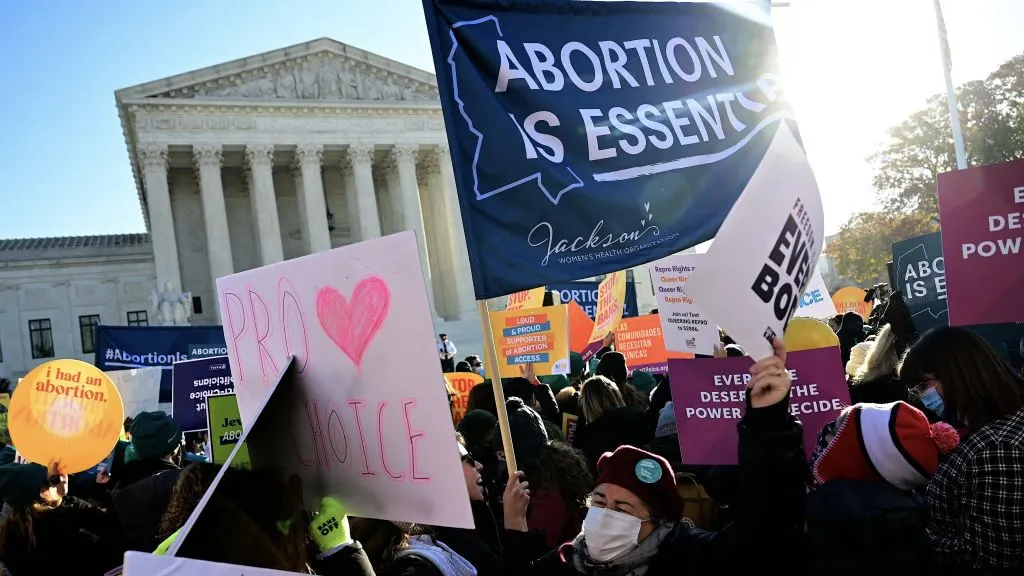Today, the Supreme Court will hear arguments on a case out of Mississippi that could dramatically change the landscape of abortion in the country.
The case, Dobbs v. Jackson Women’s Health Organization, concerns a 2018 law in Mississippi that bans most abortions after 15 weeks of pregnancy. As the law stands now, Roe v. Wade and the decisions that came after it hold that states have to allow a woman to be able to get an abortion up to the point of viability, or when the baby can survive on its own outside the womb. Most states hold this mark at around 20 to 24 weeks, so the Mississippi law is a direct violation.
Originally, Mississippi said in its petition that the questions presented to the Court do not require them to overturn Roe or Planned Parenthood v. Casey. In its brief in July, however, the state wrote, “Roe and Casey are egregiously wrong” and said the court should overrule those decisions.
Many are asking why this case in particular is so important and being watched so closely. It has to do with the Supreme Court and the question they plan to consider.
When the Supreme Court agreed to hear the Mississippi case, it said it would consider the question of “Whether all pre-viability prohibitions on elective abortions are unconstitutional,” meaning that with this decision, they could rule that states can make their own laws regarding abortion again — even possibly banning it up to the point of conception. The high court could give power back to the states to restrict abortion like they were able to do prior to the 1973 Roe v. Wade ruling.
There are currently at least 21 states that have pro-life laws or constitutional amendments that would make them highly likely to move to prohibit almost all abortions in their states if Roe is overturned.
The Guttmacher Institute reported:
By the time the Supreme Court hears oral arguments in the Mississippi case, there will be nine states with an abortion ban still on the books from before Roe v. Wade, 12 states with a trigger ban tied to Roe being overturned, five states with a near-total abortion ban enacted after Roe, 11 states with a six-week ban that is not in effect and one state (Texas) with a six-week ban that is in effect, one state with an eight-week ban that is not in effect and four states whose constitutions specifically bar a right to abortion. Some states have multiple types of bans in place.
There are an additional five states that would probably prohibit abortion as soon as they could. According to the Guttmacher Institute, these states include Florida, Indiana, Montana, Nebraska, and Wyoming.
This is considered to be the most conservative Supreme Court in decades and their decision will likely be announced next summer.
While it’s impossible to know how the justices will rule on this case, many are pointing to their past records to try to speculate how each of them could lean.
Justice Stephen Breyer, Sonia Sotomayor, and Elena Kagan have supported abortion in the past. The newer justices like Justice Neil Gorsuch, Brett Kavanaugh, and Amy Coney Barrett are thought to be more conservative, but this case will likely offer a more intense scrutiny of that.
Chief Justice John Roberts is difficult to predict, and Justice Samuel Alito is unclear, as well, although he has seemed to lean toward pro-life decisions in the past.
Justice Clarence Thomas is probably the most open about his opinions on Roe, as he has been very forthright about his stance against the decision in the past.
In a 2020 dissenting opinion, he wrote, “Our abortion precedents are grievously wrong and should be overruled.”
He went on to write: “The Constitution does not constrain the States’ ability to regulate or even prohibit abortion. This Court created the right to abortion based on an amorphous, unwritten right to privacy…”
He also appears to be in favor of overturning past precedent, which could be a key factor in this case since Roe and other rulings that took place after have been heavily used to uphold abortion laws around the country.
As the longest-serving member of the court, Justice Thomas has long expressed his desire for Roe to be overturned.
After arguments take place Wednesday, Justice Thomas might just witness the overturning of Roe v. Wade.

.png)
.png)

